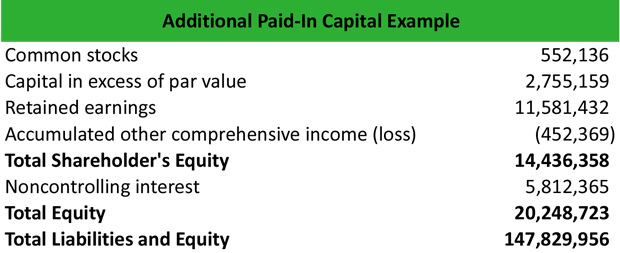What Does Additional Paid In Capital Mean?
What is the definition of additional paid-in capital? APIC is any payment received by a firm’s shareholders above the par value of the stock. The par value is usually very low, i.e. at $0.01, so that most of the amount paid in by each investor in excess of this value is recorded as APIC. APIC applies both to common stocks and preferred stocks. To calculate the additional paid-in-capital we need to know the number of shares outstanding, the issue price and the par value.
Let’s look at an example.
Example
Company X is a manufacturing company. The company decides to build a second manufacturing plant by issuing 20,000 shares of new stock at $5 per share. The par value of the stock is $0.01. The company has 552,361 common shares outstanding.
Hence, the additional paid-in capital formula is calculated as follows:
APIC = (Issue price – Par value) x Shares Outstanding = ($5 – $0.01) x 552,361 = $2,755,159.
The company records the capital in excess of par value in the shareholder’s equity section on the balance sheet as follows:

Additional paid-in capital provides an indication on how much money investors are pouring into the company (in this case $2.8 million). Financial analysts keep an eye on shareholder’s equity for capital in excess of par value because it implies the degree of investor confidence as well as how wisely the firm’s management is using this money. Note that additional-paid-in-capital is not traced on the income statement.
Define Additional-Paid-In-Capital: APIC stock means the additional funds paid for a company’s shares over the par value.


